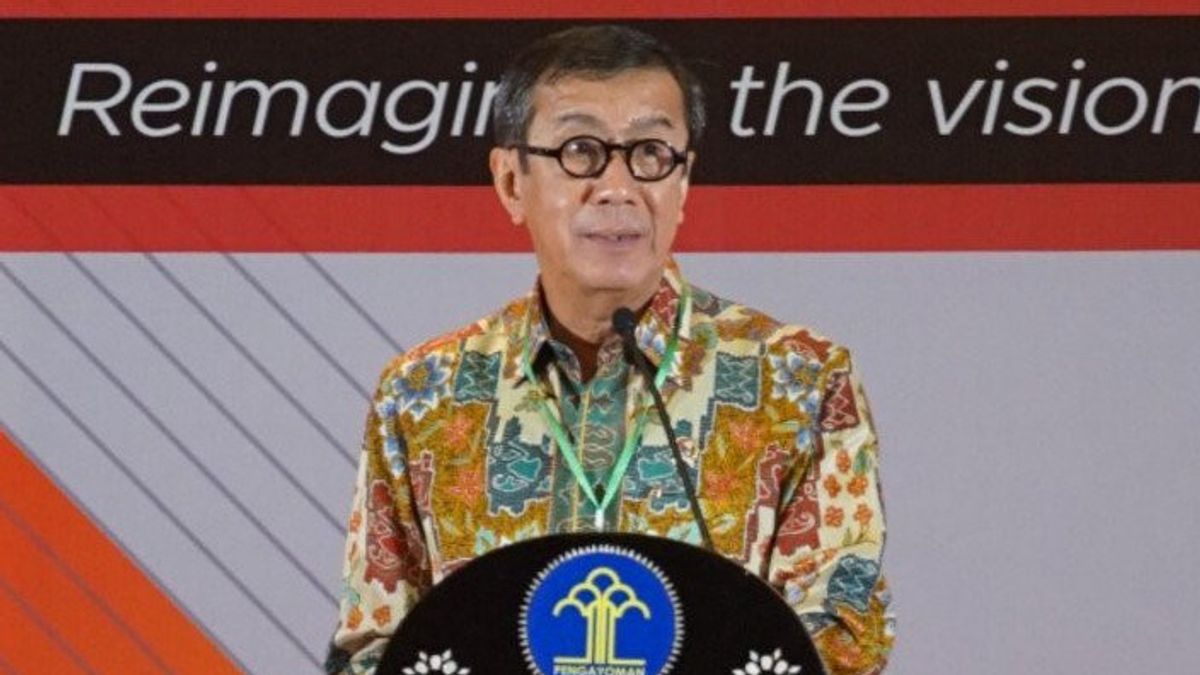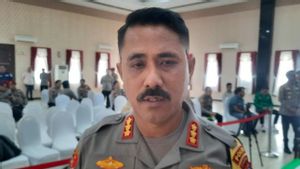JAKARTA - Minister of Law and Human Rights (Menkumham) Yasonna Laoly stated that law enforcement and protection of human rights (HAM) must be more responsive and inclusive in the midst of the COVID-19 pandemic.
This was conveyed by Yasonna when he opened the International Conference on Law and Human Rights held by Balitbangham Kemenkumham in the series of Dharma Karya Dhika 2020 Day at the JS Luwansa Hotel, Jakarta, Monday, October 26.
"During a pandemic like now, both law enforcement and protection of human rights must be more responsive and inclusive. A more balanced approach and strategic work plans are very important, at the national to global level," said Yasonna in his statement quoted by Antara.
"This of course requires strong cooperation and commitment from all stakeholders, namely the government and the global community," he said.
According to Yasonna, the response to the conditions caused by the COVID-19 pandemic must be strengthened by legal rules that serve as guidelines for efforts to overcome the effects of the pandemic and to recover conditions.
Therefore, the issuance of a number of government regulations by President Joko Widodo and the omnibus law of the Job Creation Law was called Yasonna as an effort to strengthen legal principles and a policy framework to respond to the impact of the pandemic and its recovery policies.
The government, he said, has allocated IDR 365.5 trillion for health, social protection, and Micro, Small and Medium Enterprises (MSMEs).
"About 3.7 million Indonesians have lost their jobs due to the COVID-19 pandemic and have resulted in the unemployment rate in Indonesia reaching 10.6 million people. The Omnibus law of the Job Creation Law is expected to help overcome this problem, as well as an instrument to improve regulatory overlaps and simplify bureaucracy. to attract investment, "he said.
Yasonna added, although the focus in all countries currently lies in efforts to overcome and recover from the impact of the COVID-19 pandemic, law enforcement and protection of human rights must not leave vulnerable groups, such as the poor, women, children, and marginalized groups.
He said that governments across the country should make integrated efforts in providing access to legal and human rights protection for these groups.
Kemenkumham is known to have launched the "Access to Justice" service where legal assistance is provided free of charge to those who cannot pay a lawyer to get justice.
"In addition, Kemenkumham will continue to take the necessary steps to provide fair, transparent, effective, non-discriminatory and accountable services in order to provide the widest possible access to justice for all people, especially vulnerable groups in society," he said.
The English, Chinese, Japanese, Arabic, and French versions are automatically generated by the AI. So there may still be inaccuracies in translating, please always see Indonesian as our main language. (system supported by DigitalSiber.id)











